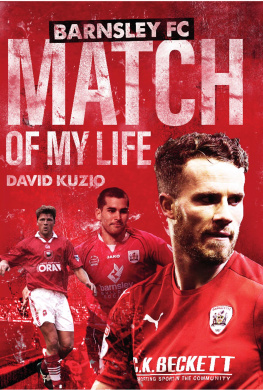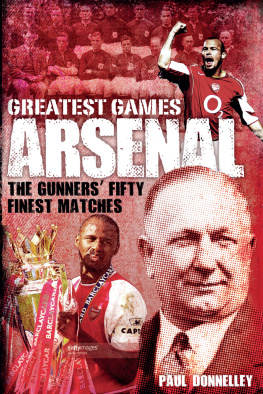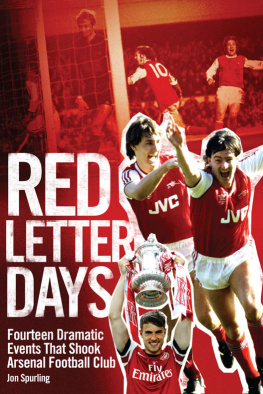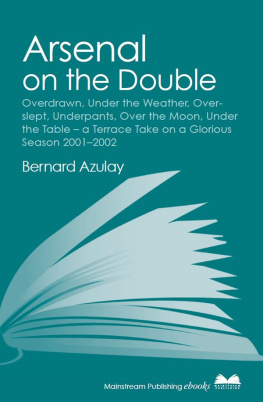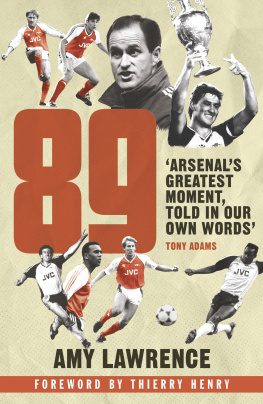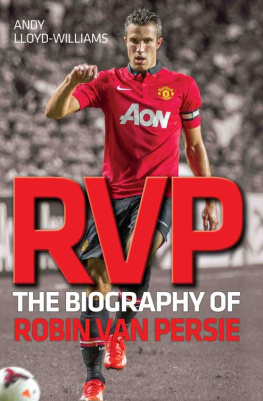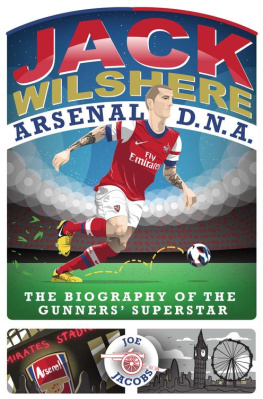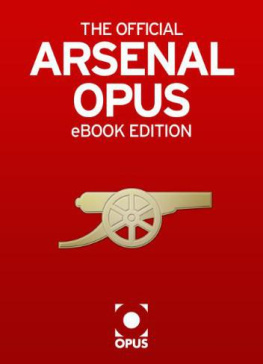First published by Pitch Publishing, 2020
Pitch Publishing
A2 Yeoman Gate
Yeoman Way
Durrington
BN13 3QZ
www.pitchpublishing.co.uk
Alex Crook & Pat Symes, 2020
Every effort has been made to trace the copyright.
Any oversight will be rectified in future editions at the earliest opportunity by the publisher.
All rights reserved under International and Pan-American Copyright Conventions. By payment of the required fees, you have been granted the non-exclusive, non-transferable right to access and read the text of this e-book on-screen. No part of this text may be reproduced, transmitted, downloaded, decompiled, reverse-engineered, or stored in or introduced into any information storage and retrieval system, in any form or by any means, whether electronic or mechanical, now known or hereinafter invented, without the express written permission of the Publisher.
A CIP catalogue record is available for this book from the British Library
Print ISBN 9781785313110
eBook ISBN 9781785314346
---
Ebook Conversion by www.eBookPartnership.com
Contents
Acknowledgements
The authors would like to thank the following for their help in the preparation of this book: Adrian Clarke, Alex Montgomery, Will Price, Adrian Durham, Jim White, Rob Knox, Jake Rusby, Mark Bullen, Connor Armstrong, Sam Matterface, Neil Allen, Joe Batchelor, Mike White and Jean Bernard Le Fur.
Also, a special mention to Alexs wife Emma for giving him the inspiration for the project with her love for Arsenal and of course to the cast list of Gunners greats who so willingly gave up their time to share their special stories with us.
Foreword
Anyone lucky enough to have represented Arsenal will only have good things to say about their experiences, so to be able to proclaim I won trophies with them as both a player and a manager is something that I am immensely proud of.
It is one of the biggest clubs in the world and some of the most famous names in the game have pulled on the famous red-and-white jersey. It is also the club that is most special to me and the one that gave me the greatest memories from a football career I absolutely loved.
I was an okay player but nothing special by Arsenals standards, especially in later years when some of the players they had were truly world class. I was up and down; there were some games where I was good but a lot of games where I was the opposite. Luckily enough, we did manage to win things while I was there as a player, thanks largely to my talented team-mates.
Id had a good couple of seasons at Chelsea when Tommy Docherty decided to break up our young team and I was one of the players sold in the summer of 1966, making the move from west to north London. Full-back Bob McNab joined Arsenal at the same time and they were trying to rebuild the team under Bertie Mee.
Bertie was a brilliant organiser and managed the whole footballing side of the club from the youth team to the reserves, all the way up to the first team, but he was not a coach who was on the training pitch every day and left that to Dave Sexton and, latterly, Don Howe.
I played under Dave when he was a coach at Chelsea so I knew how good he was and, when he left to go back to Stamford Bridge, Don came in. They were two brilliant coaches who definitely rubbed off on me so I learned an awful lot from them both.
We had some great characters in our team like Charlie George, who was very opinionated and had strong views about the game. He is still the same to this day. He just had outstanding natural talent and nobody could tell him what to do because Charlie knew what he wanted to do when he was on the pitch. He was great going forward and was also a local boy, born just up the road from Highbury, so was a big Arsenal fan as well. He also loved the media because he was very talkative.
Alongside Charlie there was Frank McLintock, who to me is one of Arsenals true greats. He was the inspiration in the team for a number of years and was a terrific captain. When you went to places like Anfield or Old Trafford you would look over your shoulder and see Frank there and it was like having three players rolled into one.
I felt sorry for Frank because he kept getting to cup finals and losing them, four in a row as I recall, so there was a stage when he thought he would never win one. I knew we were on the right path, but when we finally beat Anderlecht over two legs to lift the 1970 Inter-Cities Fairs Cup, it was an unbelievable feeling.
Bob Wilson was also part of that team and he was a fantastic goalkeeper and later a coach at Arsenal as well. Bob and I made our Scotland debuts in the same game alongside Kenny Dalglish and the two of us travelled up to Glasgow together. The rest of the players could not understand Bobs English accent and it was a bit strange to have an Englishman playing in goal for Scotland.
The Fairs Cup victory was the start of a good spell of success for the club, and we went on to win the League and FA Cup Double in 1971. I thought I had scored in the cup final against Liverpool at Wembley because the ball was bobbling around in the box and I was sure I got a touch to put it into the net. All of my team-mates congratulated me and were saying things like, Well done George, you have won the cup. It was a great moment until after the game when Jimmy Hill announced on television that I did not get a touch and the goal was taken away from me and given to Eddie Kelly, which I am still not entirely convinced about, but at least we won.
I wish I could have brought Arsenal more success as a player and it was something that really got under my skin once I became manager: trying to put them back on the winning trail again.
As a youth coach at both Crystal Palace and Queens Park Rangers, I worked quite a lot with Terry Venables and learned an awful lot from him in terms of how he set up a team to play in a certain system.
That type of learning was invaluable for me so, when I became a manager, I knew exactly how we were going to play and it was just a matter of getting the players to function the way I wanted them to. I also knew the type of player I wanted to sign and used to buy the regional sports newspapers from all around the country every week, papers like the Sports Argus in Birmingham, the Sheffield Green Un and the Newcastle Chronicle .
I felt that gave me an edge over other managers because it helped me form an opinion of who was playing well for their club. I remember reading that Lee Dixon had won Stoke Citys Player of the Year three years on the trot so I thought he must be a good player. I went to watch him a few times and saw Steve Bould playing alongside him, so I signed the pair of them.
I wanted to build a team with stability at the back so, as well as Dixon and Bould, I got Nigel Winterburn from Wimbledon to replace the great Kenny Sansom at left-back. I recruited some unfancied players like Kevin Richardson from Watford and I could also call upon one of the best youth policies in the country thanks to, among others, Pat Rice.
When I was appointed, we had about eight outstanding young players all ready to come into the first team, including David Rocastle, Paul Davis, Michael Thomas, Tony Adams and Martin Keown I could virtually name a whole team of them. I had seen Tony play when I was managing the youth team at QPR and by the time I arrived at Arsenal he was not only ready to play but was virtually ready to be captain because he was such a fantastic leader on and off the pitch. Rocastle was an outstanding talent, unbelievable, and it was a very hard decision to sell Rocky to Leeds in 1992 but he had picked up a knee injury and we were told it was so bad that he could not play more than one game a week. It was unfortunate but, to be a top team challenging for trophies, you are going to have to play more than just once a week. Rocky was still outstanding in the matches he did play and without the injury he would have been an England regular.


